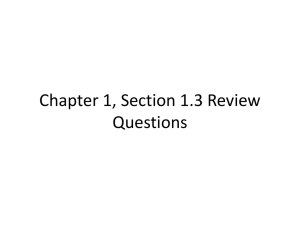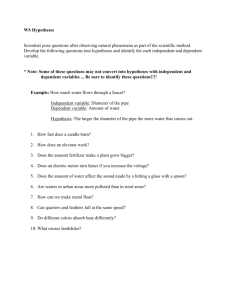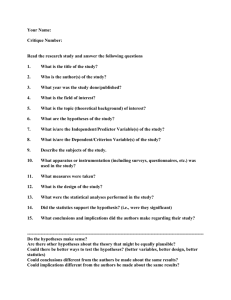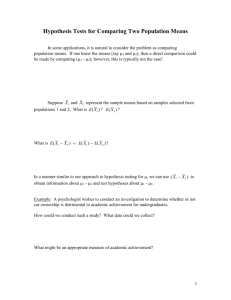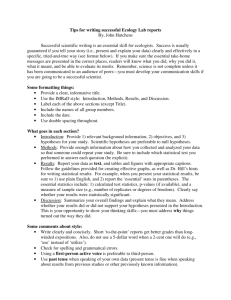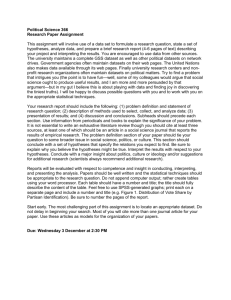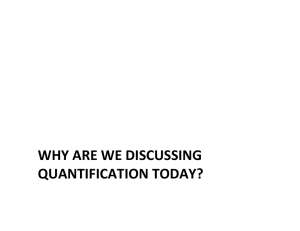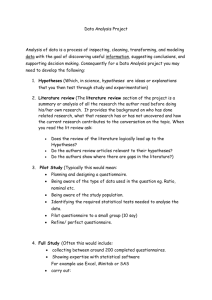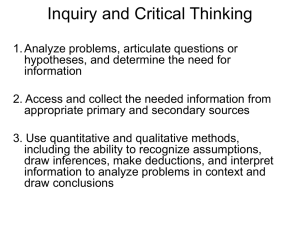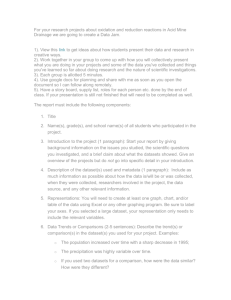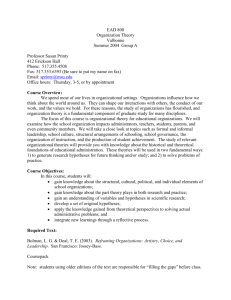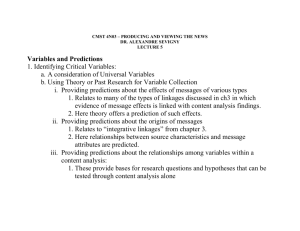doc - Academic Program Pages at Evergreen
advertisement
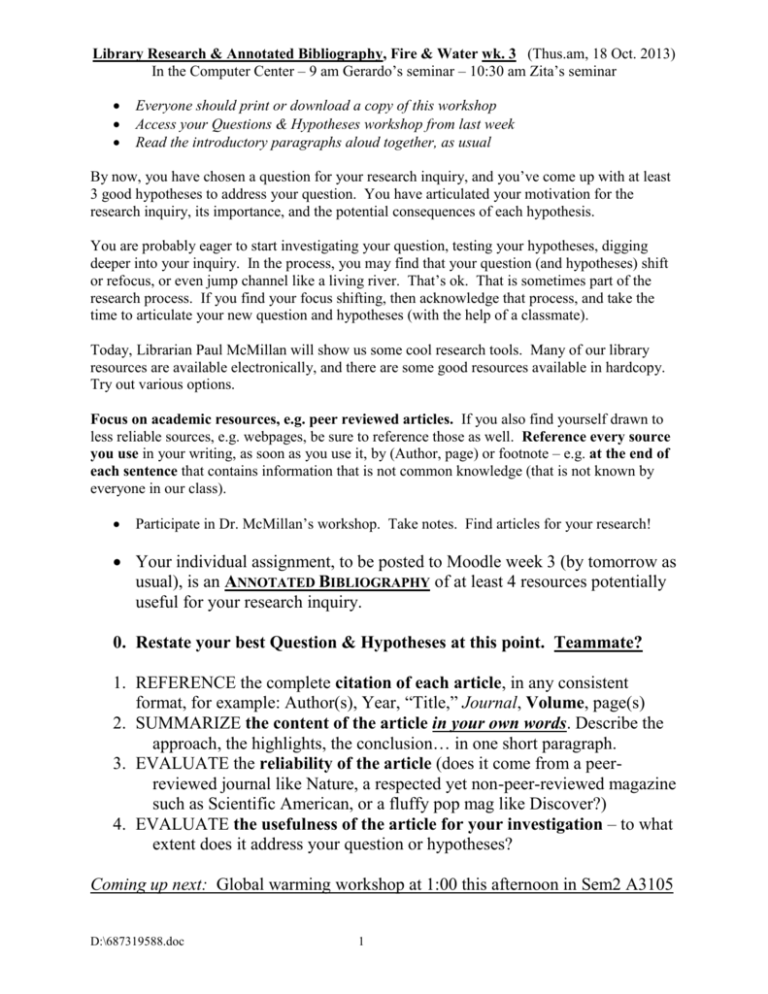
Library Research & Annotated Bibliography, Fire & Water wk. 3 (Thus.am, 18 Oct. 2013) In the Computer Center – 9 am Gerardo’s seminar – 10:30 am Zita’s seminar Everyone should print or download a copy of this workshop Access your Questions & Hypotheses workshop from last week Read the introductory paragraphs aloud together, as usual By now, you have chosen a question for your research inquiry, and you’ve come up with at least 3 good hypotheses to address your question. You have articulated your motivation for the research inquiry, its importance, and the potential consequences of each hypothesis. You are probably eager to start investigating your question, testing your hypotheses, digging deeper into your inquiry. In the process, you may find that your question (and hypotheses) shift or refocus, or even jump channel like a living river. That’s ok. That is sometimes part of the research process. If you find your focus shifting, then acknowledge that process, and take the time to articulate your new question and hypotheses (with the help of a classmate). Today, Librarian Paul McMillan will show us some cool research tools. Many of our library resources are available electronically, and there are some good resources available in hardcopy. Try out various options. Focus on academic resources, e.g. peer reviewed articles. If you also find yourself drawn to less reliable sources, e.g. webpages, be sure to reference those as well. Reference every source you use in your writing, as soon as you use it, by (Author, page) or footnote – e.g. at the end of each sentence that contains information that is not common knowledge (that is not known by everyone in our class). Participate in Dr. McMillan’s workshop. Take notes. Find articles for your research! Your individual assignment, to be posted to Moodle week 3 (by tomorrow as usual), is an ANNOTATED BIBLIOGRAPHY of at least 4 resources potentially useful for your research inquiry. 0. Restate your best Question & Hypotheses at this point. Teammate? 1. REFERENCE the complete citation of each article, in any consistent format, for example: Author(s), Year, “Title,” Journal, Volume, page(s) 2. SUMMARIZE the content of the article in your own words. Describe the approach, the highlights, the conclusion… in one short paragraph. 3. EVALUATE the reliability of the article (does it come from a peerreviewed journal like Nature, a respected yet non-peer-reviewed magazine such as Scientific American, or a fluffy pop mag like Discover?) 4. EVALUATE the usefulness of the article for your investigation – to what extent does it address your question or hypotheses? Coming up next: Global warming workshop at 1:00 this afternoon in Sem2 A3105 D:\687319588.doc 1
